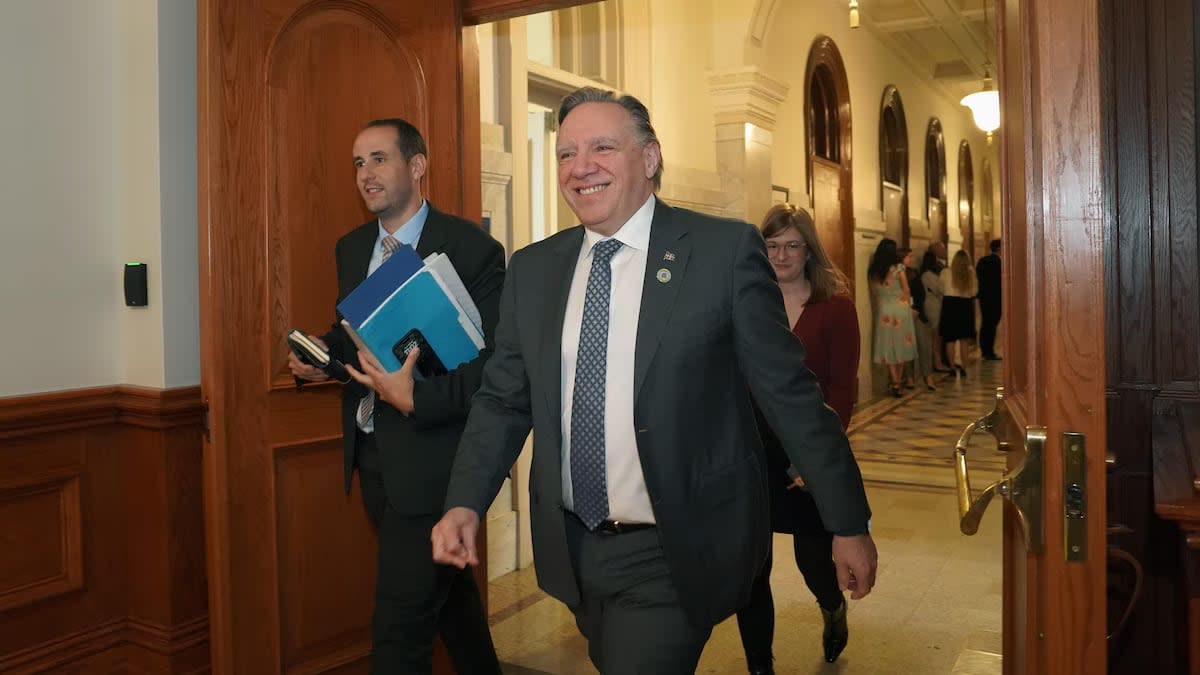Quebec wants to make the most of its constitutional powers with help from a new committee

Quebec has mandated six experts to examine how to take full advantage of its powers outlined in Canada's Constitution, particularly for matters related to immigration, language and secularism.
The creation of the advisory committee comes on the last day of the spring parliamentary session, and before Premier François Legault meets with Prime Minister Justin Trudeau on Monday.
Both leaders are expected to discuss Quebec's demands concerning immigration, namely Legault's call to change the federal international mobility program, through which 80 per cent of Quebec's temporary foreign workers are selected.
During question period Friday, Legault said the committee would be tasked with examining the consequences of Ottawa's "encroachments" on Quebec's priorities, alluding to measures announced in federal Finance Minister Chrystia Freeland's last budget, which touch on health care, education and housing — areas of provincial jurisdiction.
"The federal government acts as if Quebecers were not able to govern themselves in the areas of Quebec's jurisdiction agreed in the federative pact," Legault said in the Salon Bleu.
The Coalition Avenir Québec government's latest expert committee will be chaired by former MNA Sébastien Proulx, who served in the National Assembly for the Action Démocratique du Québec from 2007 to 2008 and for the Quebec Liberals from 2015 to 2019, and by lawyer Guillaume Rousseau, who is known for defending Quebec's secularism law before the courts.
Other members of the committee include Martine Tremblay, who was chief of staff to former premier René Lévesque; Luc Godbout, research chair in taxation and public finance of the Université de Sherbrooke; Catherine Mathieu, political science professor at Université du Québec à Montreal (UQAM) and Amélie Binette, associate law professor at the Université du Québec en Outaouais.
Experts will produce a report and make recommendations in October. Legault underlined that the committee is not meant to re-open constitutional negotiations with Ottawa.
Legault said Justice Minister Simon Jolin-Barrette will manage the portfolio within the government.
Committee points to government's failure, says Opposition
Before the announcement, Parti Québécois Leader Paul St-Pierre Plamondon told reporters Friday that the committee's challenge will be to explain what Quebec can do "once we're told, 'no'" by Ottawa.
"If we go around that question, it means we're pushing things off, and trying to buy time," he said, emphasizing that for his party, Quebec sovereignty is the clear answer.
Similarly, Québec Solidaire co-spokesperson Gabriel Nadeau-Dubois said Friday morning that if Legault had results after six years, he wouldn't need the committee.
"At face value, it's an admission that the results are not there yet," Nadeau-Dubois said. "We will judge the results when we will see them, but for the time being, there are none."
Quebec Liberals interim Leader Marc Tanguay said Friday the timing of the committee's creation suggests that Legault is trying to draw attention away from his government's failure, and that the premier should take a more collaborative approach to governing.
"He's always fighting against everyone. Fighting against Justin Trudeau, Ottawa. Not finding a position where it can be a win-win within the Canadian federation," Tanguay said.


